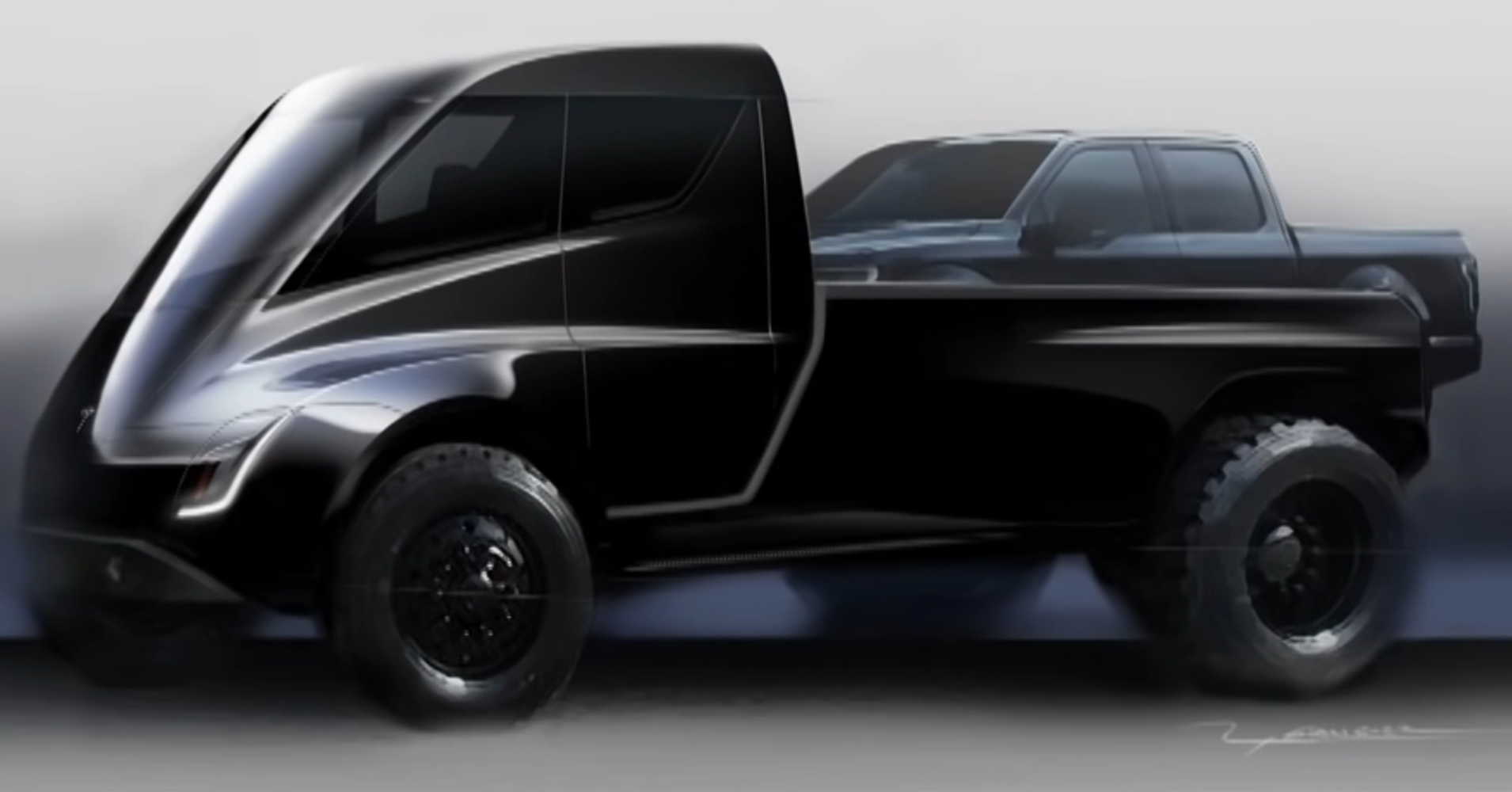The next shakeup in smart transportation could be just around the corner.
Find new market trends and innovative companies with Crunchbase Pro.
As we look to the horizon for what’s to come, here are a few questions to consider. How these stories unfold could change the smart transportation landscape.
Will Apple unveil a car?
An Apple-produced automobile has been the subject of speculation for a very long time. The company has been on and off about its plans to make a car for several years now, notably closing its autonomous vehicle department in 2016.
But the company has been recruiting Tesla employees en masse over the last year, not the least of whom include Doug Field, who returned to Apple’s fold in August. As of last month, Apple hired Tesla exec Andrew Kim, revving up rumors that the tech giant may be working to produce a car on an accelerated timeline.
Yo, I don’t hate Apple. It’s a great company with a lot of talented people. I love their products and I’m glad they’re doing an EV.
— Elon Musk (@elonmusk) October 9, 2015
Why it matters for smart transportation
Apple has a track record for reinventing products most people didn’t even know needed the remake—like when they combined a cell phone, iPod, and computer into the ubiquitous iPhone.
Applying their touch to cars would cause an industry-wide shift that changes driving as we know it. This will take time, however. Car manufacturing would be the first product in which Apple has to account for potential fatalities.
Will Tesla introduce a pickup?
Elon Musk has tweeted about a pickup truck over the last two years: first in 2017, when he said plans would be revealed in 18–24 months.
Over the course of the last year, he continued the conversation: once in June, when he asked what users want to see in a Tesla model, and then again in November when he said Tesla “might” unveil a prototype for a pickup.
It’s hard to tell if plans at Tesla are on track with Musk’s goals. Car die-hards are also wondering how these prototype plans may tie into the driverless vehicle testing Musk said Tesla is currently testing for.
Why it matters for smart transportation
A pickup model would be a way to expand the current Tesla line and target a new demographic. People who want to drive pickups don’t always want to drive an electric car like a Tesla 3. But they’re also a crucial market to tap. Pickup drivers have proven to be the lifeblood of companies like Ford, which leans heavily on their wildly popular F150 for financial performance.
Will a big car company go under?
Despite all the hype around autonomous cars and pickup prototypes, some companies might be in hot water this year. A recent Forbes article noted speculation that [Tesla’s] “operations are not self-sustaining and that it is unable to function as a going concern without access to capital markets.”
The article shows just how competitive the automotive sector truly is. And while the Forbes author isn’t the only one wondering how long the auto giant will last, I still wouldn’t bet against Tesla in the coming year. Automakers like Fiat Chrysler Automobiles (FCA) and Nissan-Renault, however, are a different story.
Both companies have revolved around their iconic leaders for a decade. Now both find themselves leaderless—the former has passed away, the latter is in jail. This could spell an uncertain future for two multinational industry giants.
Why it matters for smart transportation
A major manufacturer shutting down could mean a major hit to the economy in places where that company has an impact. When GM closed 1,100 dealerships in 2009, hundreds of thousands of employees went out of work. With FCA and Nissan-Renault having global operations, the impact of shuttering could be devastating for communities around the world.
What will 2019 bring for scooter companies?
2018 ended with ten electric scooter companies cropping up globally—Bird, Lime, Scoot, Spin, Ride, Tier, Wind, Drop, VOI, and Skip. The last few months, in particular, saw even more companies starting, as well as transportation giants like Ford and GM jumping in to create their own models. But the overhead of maintaining micro transit that is so easily destroyed, lost, stolen, or vandalized makes the longevity of the scooter market unstable.
While these companies planned to pay for tangible hardware, their business models assumed less vandalization. And it can really affect your case if you think a scooter is going to last three years but only survives two months. Unless scooters can “toughen up,” like Andrew Hawkins at The Verge posts, they may not make it much longer.
Why it matters for smart transportation
Let’s look at the scooter industry in comparison to the bicycle rideshare companies of 2013. We see some parallels that could indicate what 2019 will bring to micro transit. With the bikes, we saw a Cambrian explosion of different brands and now, a little over a year later, none of them are viable companies—either because they’ve been bought out, shut down, or gone bankrupt.
It seems that in order to make micro transit businesses endure, companies have to first promote their vehicles so everyone knows about them. They then need to know how to use the app and how far they can take the vehicle.
Will an electric VTOL take off in public?
A “vertical take-off and landing” aircraft involves taking off and landing while maintaining a vertical position—kind of like a helicopter, although there are some airplane types that can achieve this as well. The technology is being leveraged in combination with electric power to create personal aircraft prototypes. Prototypes from companies like Opener have already been revealed and demonstrated, giving them the potential to be completely unveiled to consumer markets next year. Other players in the space include Lilium, Pipistrel, and even Uber.
Why it matters for smart transportation
If anyone from the long list of VTOL players gains the confidence to run a pilot between two locations in public, with people who aren’t tested pilots or employees, that would be ground-breaking. This industry sees a brand new, cutting-edge race that we’ve never seen before in history. We’re at a moment when we get to watch it happen.
Players to watch:
- Joby
- Pipistrel
- Lilium
- Kitty Hawk
- Opener
- Aurora Flight Sciences
- Uber
- Bye Aerospace
- Vertical Aerospace
- Karem Aircraft
Will drone deliveries begin in the US?
Alphabet, Google’s parent company, announced it will be offering a free trial-run of its drone delivery service, Wing, in the spring of 2019 in Finland. The deliveries will be for distances of ten minutes or less, for weights of up to 3.3 pounds. So far they’ve mostly made food and grocery deliveries available in the service. You can also get a few household goods.
With the sci-fi service made a reality in only a few short months, the next question is how soon could we have drone delivery in the United States? Many transit startups, including Uber, have been finding ways to push into food delivery via drones, so it may only be a matter of time with Alphabet pushing the competition to a breaking point.
Why it matters for smart transportation
In the age of instant delivery, we’d be wise to find better ways to streamline these processes. There are congested roads, but high demand for small deliveries. It doesn’t make sense to have a massive delivery truck navigating traffic.
If you need to deliver a package of pens, it makes more sense to assign the task to a drone and have it drop it off. Additionally, utilizing drones for small deliveries lessens the pressure on infrastructure. Roads are expensive to build and maintain, so anything that relieves that cost could be beneficial for communities.
Players to watch:
How will Waymo’s taxi service play out?
Alphabet announced earlier this year that it would be launching its robotaxi service in December in Phoenix, Arizona. The company’s headquarters are in California. This means the decision to launch the self-driving cars in Arizona may have to do with the state’s lax autonomous vehicle restrictions.
Accidents caused by self-driving cars, for example, don’t have to be publicly disclosed. In late 2018, residents of select Phoenix suburbs were able to take a robotaxi ride for the first time ever. But with reports in other Arizona cities of some fatal autonomous car crashes (along with a handful of aggressive protestors), how Waymo will progress in the new year remains a point of interest.
Why it matters for smart transportation
Since a driver is 50% of the cost of a ride, it’s a huge improvement to the economics of ride-share services to cut them out. And if you can create a safer, more comfortable and reliable service, then it’s even better for users. Assuming Waymo is able to overcome their initial obstacles, we have every reason to believe they’ll expand over the coming year.
This could set the tone for smart transportation companies throughout 2019. Transportation could be even more multi-modal in order to be efficient. The best way to get around a city is not the best way to get around a rural area. Transportation companies, whether they’re car manufacturers or ride-share services, will need to take notes from Waymo. They will need to find ways to solve problems without simply building more cars.
Will Lyft or Uber be acquired after IPO next year?
Both the ride-sharing giants Lyft and Uber have announced plans to launch their IPOs next year. Uber is estimated to be at $120 billion, making it the biggest addition to Wall Street since Alibaba in 2014. Lyft’s IPO is positioned for the first half of 2019, but has not disclosed any estimates or financial results—so there’s no way to know if Uber’s biggest competitor will outstrip it in its public debut.
Why it matters for smart transportation
This could be a huge opportunity for one of the tech giants to absorb a smart transportation company. Ultimately they’d further their own endeavors to enter that market. However, Uber’s massive estimation puts it out of reach of anyone that isn’t Apple or Alphabet—and they’ll have to be determined to liquidate some assets in order to do so.
Pete Staples is the president and cofounder of Blue Clover Devices. His professional career began at Boeing Satellite Systems (formerly Hughes Space and Communications) developing advanced communication payloads. Staples has been awarded the Hughes Innovation Award for work related to a novel modem design.




